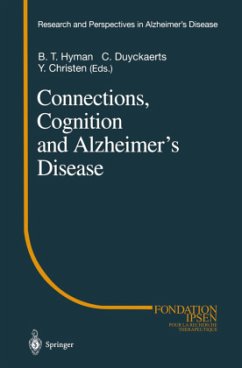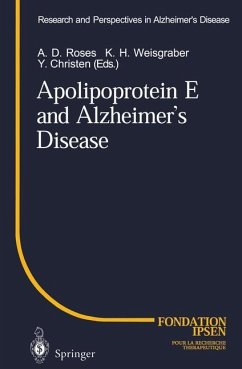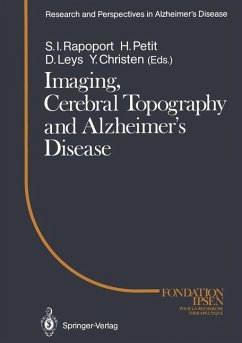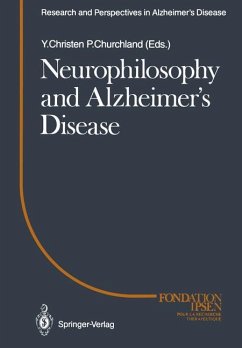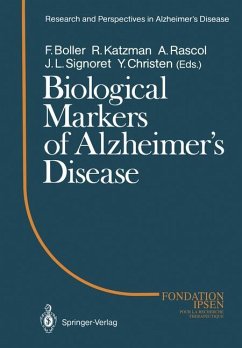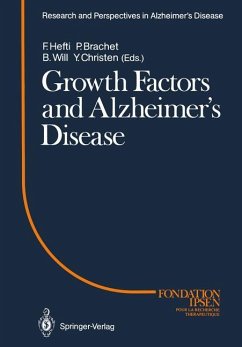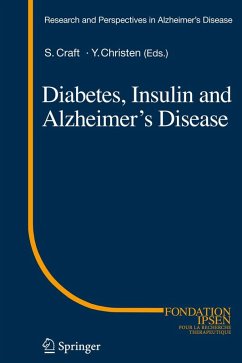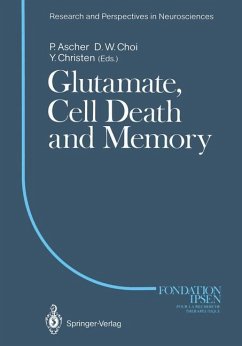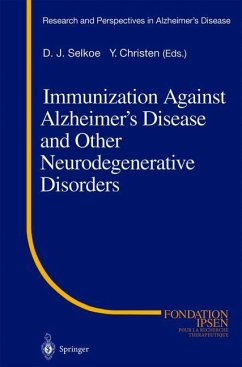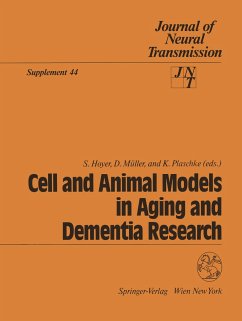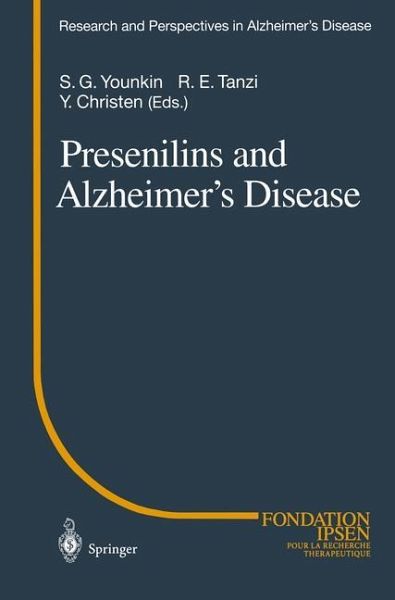
Presenilins and Alzheimer's Disease
Versandkostenfrei!
Versandfertig in 6-10 Tagen
76,99 €
inkl. MwSt.

PAYBACK Punkte
38 °P sammeln!
The discovery in 1995 that defects in the novel presenilin genes harbor defects which cause up to half of all cases of early onset familial Alzheimer's disease cases has rapidly led to the creation of a new and exciting sub-field in Alzheimer's disease research. This has clearly been evidenced by the fact that over 250 papers have now been published regarding the presenilins since their identification in 1995. One of the earliest findings regarding the role of the presenilins in Alzheimer's disease was the discovery that like familial Alzheimer's disease mutations in the amyloid ß protein pre...
The discovery in 1995 that defects in the novel presenilin genes harbor defects which cause up to half of all cases of early onset familial Alzheimer's disease cases has rapidly led to the creation of a new and exciting sub-field in Alzheimer's disease research. This has clearly been evidenced by the fact that over 250 papers have now been published regarding the presenilins since their identification in 1995. One of the earliest findings regarding the role of the presenilins in Alzheimer's disease was the discovery that like familial Alzheimer's disease mutations in the amyloid ß protein precursor gene, those in the presenilins lead to dramatically increased production of ß-amyloid in the brains of AD patients. Additionally, the presenilins appear to play roles in programmed cell death (apoptosis) and in CNS development. The provocative chapters in this book written by some of the most highly respected experts in the area of Alzheimer's disease research present some of the latest information concerning the biological function of the presenilins and how defects in these genes cause Alzheimer's disease. The knowledge contained in this volume should help to accelerate ongoing attempts to develop novel treatments for Alzheimer's disease and related disorders.



